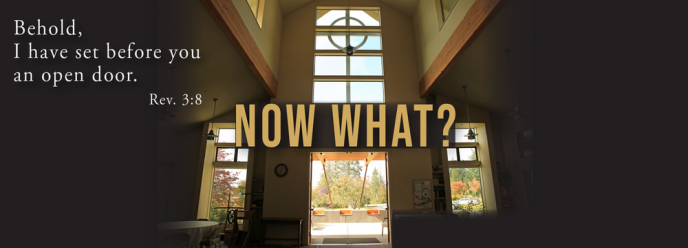Hands down, Lent is my favorite season of the Christian Year. This isn’t because I love the color purple, or because ashes and thorns and crosses are among my favorite things. It’s because Lent is an unadorned appeal to simply step back, take a breath and then lean into the difficult, and yet liberating, labor of facing into the truth. Jesus says the truth sets us free. But before it leads us across the threshold of the broad and open space, it also frightens us. And in the midst of that fear we have a choice to make: will we trust God, or will we try to go it alone.
One of the primary truths the Lenten season invites us to explore is the truth of our mortality. The truth of our limits. The truth that “we come from dust and to dust we will return.” If we look full face into this truth of death, we come to grips with our vulnerability and the question of how we are going to manage this fact. Will we try to overcome it ourselves and build walls of protection that will insulate us from it and allow us to temporarily defer or deny it? Or will we recognize our Maker who made us out of love and for love and relax into God’s embrace?
Lent asks us to work with the very basic question of trust. As vulnerable, limited beings we cannot survive apart from taking the risk of trust. Infants need their mothers for food. Children must accept their dependence on family for sustenance and protection. Spouses give up some individual prerogative in order to create a covenant bond. A big part of life is about taking the risk of trusting one who in some way has more power than us, one on whom we are in some way dependent. And there’s the rub. Dependence scares us and makes it hard to trust. How do we know that the other is for us?
There is a direct line between Eve’s conversation with the serpent in the garden and Jesus’ conversation with Satan in the wilderness. The serpent and Satan plant the same seed. They sow mistrust. “Has God said you shall not eat from any tree of the garden?” “If you are the son of God, turn these stones to bread.” In other words, does God really care about you? If so, why can’t you have the fruit of the tree in the middle of the garden, why are you out here in the wilderness hungry and thirsty? What kind of a God would deny you this wonderful abundance? How can he be so stingy?
When this seed of mistrust germinates and takes root in us, we run. For the last thing we want to be is God’s toy. But we are not God’s playthings. We are not chess pieces on his great cosmic game board. While we are indeed God’s creatures, we are also God’s children. God made us for relationship himself. And Jesus’ birth, life, death, resurrection and ascension are all a testimony of the extent to which God has gone to pursue and maintain this relationship.
Lent is not just about sin and penance. It’s not simply a reminder of disobedience and rebellion that we must renounce. It’s not primarily about admitting that we are bad and asking for God’s forgiveness. At a more basic level Lent invites us to work once again with that ever-present conundrum of trust. There is freedom in admitting our weakness and limits. Facing into that truth doesn’t simply cast us into a fear-filled abyss of vulnerability. It can also empower us to turn and see the face of God. And when we do, what we see is the same longing we see on the face of Jesus. A face that reflects his grief over our fearful rejection of him, yet nevertheless continues to shine with the invitation to us to accept the relationship and love for which we were made.
David Rohrer
Ash Wednesday 2020

